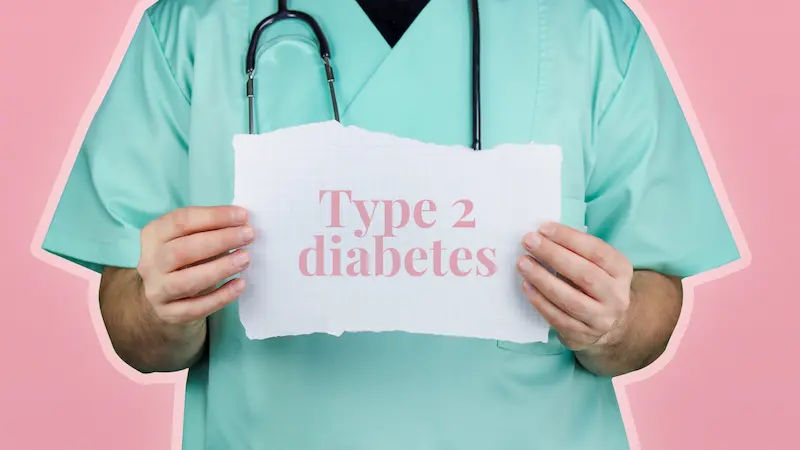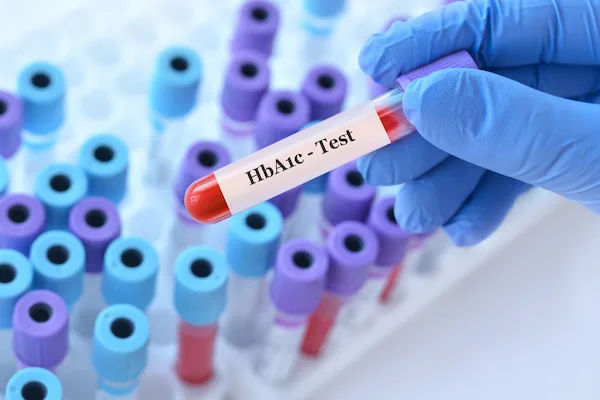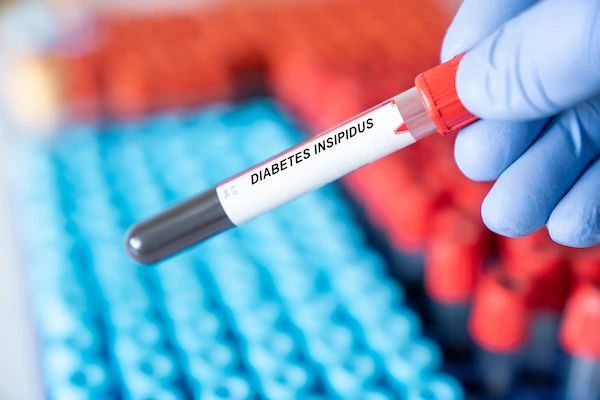Can Eating Sugar Cause Diabetes?
Explore the link between sugar consumption and diabetes. Learn how excessive sugar intake impacts metabolic health, increases insulin resistance and raises the risk of type 2 diabetes.

Written by Dr Sonia Bhatt
Last updated on 13th Jan, 2026
Diabetes is a chronic condition characterised by elevated levels of sugar (glucose) in the blood. The relationship between sugar consumption and diabetes is complex and multifaceted, often leading to misconceptions. While sugar intake alone is not the sole cause of diabetes, it plays a significant role in the development of type 2 diabetes through various mechanisms. This article aims to explore the intricate link between sugar intake and diabetes, providing a comprehensive understanding of how excessive sugar consumption can impact metabolic health and increase the risk of developing this chronic condition.
The Role of Sugar in Diabetes Development
While sugar is not the sole cause of diabetes, its consumption can influence the risk of developing type 2 diabetes through several mechanisms:
Sugar and Weight Gain: Excessive sugar intake can lead to weight gain, which is a significant risk factor for type 2 diabetes. High-calorie sugary foods and beverages increase overall caloric intake, leading to an energy surplus and subsequent weight gain. Obesity, particularly central obesity, is strongly linked to insulin resistance and type 2 diabetes development.
High Glycemic Index Foods: Foods with a high glycemic index (GI) cause rapid spikes in blood glucose levels. Sugary foods and beverages often have a high GI, leading to significant blood sugar fluctuations. Frequent consumption of high-GI foods can strain the pancreas, increasing insulin production demands and contributing to insulin resistance over time.
Sugar-Sweetened Beverages: Regular consumption of sugar-sweetened beverages (SSBs) is associated with a higher risk of developing type 2 diabetes. SSBs, including soda, fruit juices with added sugars, and energy drinks, are a major source of added sugars in the diet. These beverages contribute to an increased risk of type 2 diabetes.
Fructose and Metabolic Dysregulation: High fructose intake can lead to liver fat accumulation, insulin resistance, and dyslipidemia. Fructose, a component of sucrose (table sugar) and high-fructose corn syrup (HFCS), is metabolised differently from glucose.
These metabolic disturbances are risk factors for type 2 diabetes. Fructose-rich foods and beverages have been linked to an increased risk of metabolic syndrome, a precursor to type 2 diabetes.
Mechanisms Linking Sugar Intake to Insulin Resistance
Excessive sugar intake has been linked to several mechanisms that contribute to the development of insulin resistance and related metabolic disorders, such as type 2 diabetes. Below are the primary ways in which high sugar consumption can negatively affect the body’s ability to regulate insulin effectively:
Increased Visceral Fat: High sugar intake, particularly fructose, can promote visceral fat accumulation. Visceral fat is located around internal organs, is metabolically active and contributes to insulin resistance. Individuals with higher levels of visceral fat are at an increased risk of developing type 2 diabetes.
Chronic Inflammation: Chronic low-grade inflammation is a hallmark of insulin resistance and type 2 diabetes. High sugar consumption can trigger inflammatory pathways in the body. Elevated blood sugar levels can lead to the formation of advanced glycation end-products (AGEs), which contribute to oxidative stress and inflammation. Inflammation, in turn, exacerbates insulin resistance.
Altered Gut Microbiota: Sugar intake can impact the composition of gut microbiota. A diet high in added sugars can reduce the diversity of gut bacteria and promote the growth of pathogenic bacteria. Dysbiosis of the gut microbiota has been linked to metabolic disorders, including insulin resistance and type 2 diabetes.
How Much Sugar is Too Much?
The amount of sugar consumed plays a crucial role in determining its impact on blood sugar levels and insulin resistance. The more sugar we consume, the greater the strain on our body’s ability to regulate glucose and produce insulin. While sugar intake alone is not the sole cause of type 2 diabetes, consuming excessive amounts of sugar significantly increases the risk of developing the condition.
Health organisations like the World Health Organization (WHO) and the American Heart Association (AHA) recommend limiting the intake of added sugars. For adults, this means no more than 10% of daily caloric intake should come from added sugars, with an ideal target of 5%. For the average adult, this translates to about 25-38 grams of added sugar per day, depending on their daily caloric needs.
However, many processed foods, including sugary drinks, snacks, and desserts, can easily exceed these limits, often without providing any nutritional benefit. Cutting back on these items and focusing on whole, unprocessed foods can help reduce sugar consumption and lower the risk of diabetes.
The Link Between Sugar, Fatty Liver, and Diabetes
Another way in which excessive sugar consumption contributes to diabetes is through its impact on the liver. High levels of fructose, commonly found in sugary sodas, candies, and processed foods, are metabolised by the liver. When the liver is overwhelmed with fructose, some of it converts into fat. This process can lead to non-alcoholic fatty liver disease (NAFLD), a condition where fat accumulates in the liver without alcohol consumption.
NAFLD is strongly linked to insulin resistance and is considered one of the major precursors to type 2 diabetes. As the liver becomes overloaded with fat, its ability to regulate glucose and insulin diminishes. This increases the burden on the pancreas to produce more insulin, contributing to further insulin resistance and higher blood sugar levels.
The combination of high sugar intake and fatty liver can create a vicious cycle: the excess fat impairs insulin function, while insulin resistance promotes fat storage, further exacerbating the problem.
Preventive Measures
Reducing the risk of developing type 2 diabetes involves lifestyle changes that go beyond just limiting sugar intake. Here are some preventive measures:
Balanced Diet: Adopt a diet rich in whole foods, including fruits, vegetables, whole grains, lean proteins, and healthy fats. Limit the intake of processed and sugary foods.
Regular Exercise: Engage in regular physical activity to maintain a healthy weight and improve insulin sensitivity. Aim for at least 150 minutes of moderate-intensity exercise per week.
Weight Management: Maintain a healthy weight through a combination of diet and exercise. Even modest weight loss can significantly reduce the risk of diabetes.
Limit Sugary Beverages: Replace sugary drinks with water, herbal teas, or unsweetened beverages. This can help reduce the risk of developing diabetes.
Conclusion
While sugar consumption alone does not directly cause diabetes, excessive intake of sugary foods and drinks significantly contributes to the development of type 2 diabetes. By increasing insulin resistance, contributing to obesity, promoting fatty liver, and fostering unhealthy cravings, high sugar intake creates the ideal environment for diabetes to develop.
Understanding the relationship between sugar and diabetes empowers individuals to take proactive measures, ultimately safeguarding their health and reducing the likelihood of this chronic condition.
Consult Top Diabetologists
Consult Top Diabetologists

Dr. Swaroopa Rani
General Physician/ Internal Medicine Specialist
9 Years • MBBS, MD (Internal Medicine)
Bengaluru
Apollo Medical Center, Marathahalli, Bengaluru

Dr. Vivek D
General Physician
4 Years • MBBS
Bengaluru
PRESTIGE SHANTHINIKETAN - SOCIETY CLINIC, Bengaluru

Dr. Arthi S
Family Physician
3 Years • MBBS
Bengaluru
PRESTIGE SHANTHINIKETAN - SOCIETY CLINIC, Bengaluru

Dr. Sushith C
General Physician
2 Years • MBBS
Bengaluru
PRESTIGE SHANTHINIKETAN - SOCIETY CLINIC, Bengaluru

Dr. Nilotpal Mitra
General Physician/ Internal Medicine Specialist
20 Years • MBBS, PGDGM ( Geriatric Medicine), ACMDC (an Advance course in Diabetes and cardiovascular diseases from PHFI and WHF )
Kolkata
MCR SUPER SPECIALITY POLY CLINIC & PATHOLOGY, Kolkata



